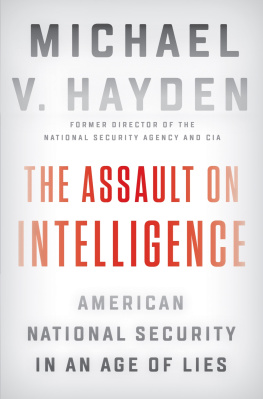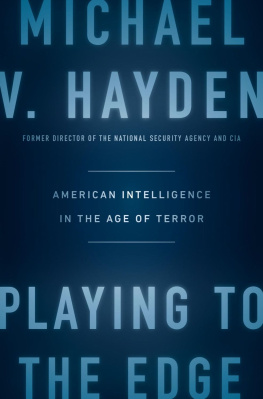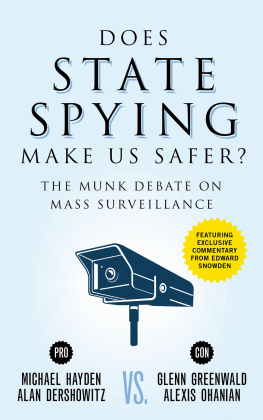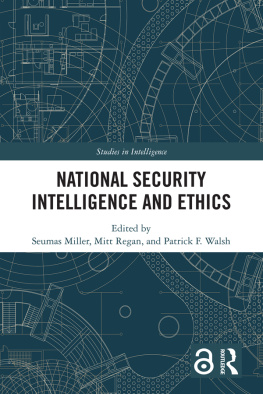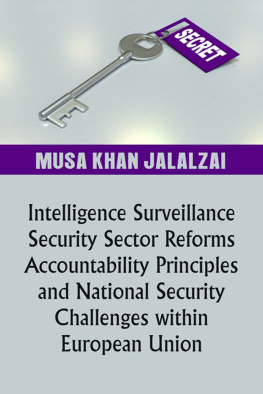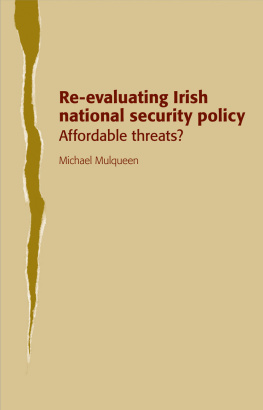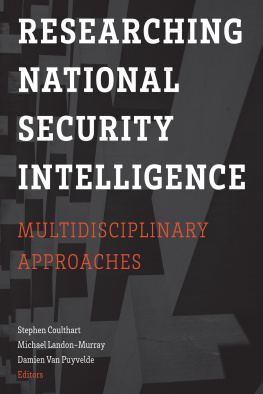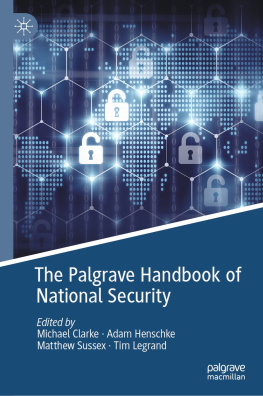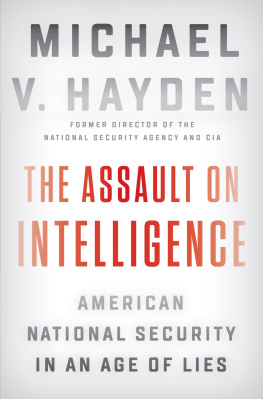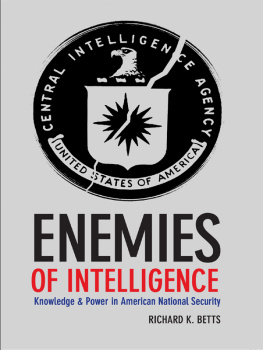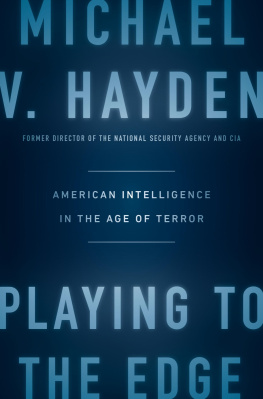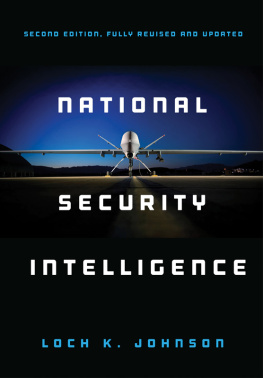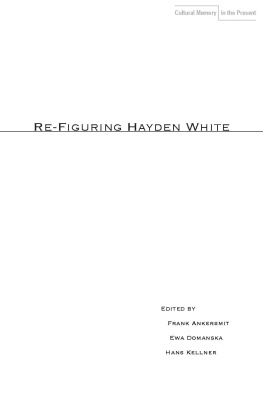Michael V. Hayden - The Assault on Intelligence: American National Security in an Age of Lies
Here you can read online Michael V. Hayden - The Assault on Intelligence: American National Security in an Age of Lies full text of the book (entire story) in english for free. Download pdf and epub, get meaning, cover and reviews about this ebook. year: 2018, publisher: Penguin Press, genre: Politics. Description of the work, (preface) as well as reviews are available. Best literature library LitArk.com created for fans of good reading and offers a wide selection of genres:
Romance novel
Science fiction
Adventure
Detective
Science
History
Home and family
Prose
Art
Politics
Computer
Non-fiction
Religion
Business
Children
Humor
Choose a favorite category and find really read worthwhile books. Enjoy immersion in the world of imagination, feel the emotions of the characters or learn something new for yourself, make an fascinating discovery.
- Book:The Assault on Intelligence: American National Security in an Age of Lies
- Author:
- Publisher:Penguin Press
- Genre:
- Year:2018
- Rating:4 / 5
- Favourites:Add to favourites
- Your mark:
- 80
- 1
- 2
- 3
- 4
- 5
The Assault on Intelligence: American National Security in an Age of Lies: summary, description and annotation
We offer to read an annotation, description, summary or preface (depends on what the author of the book "The Assault on Intelligence: American National Security in an Age of Lies" wrote himself). If you haven't found the necessary information about the book — write in the comments, we will try to find it.
The Assault on Intelligence: American National Security in an Age of Lies — read online for free the complete book (whole text) full work
Below is the text of the book, divided by pages. System saving the place of the last page read, allows you to conveniently read the book "The Assault on Intelligence: American National Security in an Age of Lies" online for free, without having to search again every time where you left off. Put a bookmark, and you can go to the page where you finished reading at any time.
Font size:
Interval:
Bookmark:

Playing to the Edge: American Intelligence in the Age of Terror

PENGUIN PRESS
An imprint of Penguin Random House LLC
375 Hudson Street
New York, New York 10014
penguin.com
Copyright 2018 by Michael V. Hayden
Penguin supports copyright. Copyright fuels creativity, encourages diverse voices, promotes free speech, and creates a vibrant culture. Thank you for buying an authorized edition of this book and for complying with copyright laws by not reproducing, scanning, or distributing any part of it in any form without permission. You are supporting writers and allowing Penguin to continue to publish books for every reader.
ISBN 9780525558583 (hardcover)
ISBN 9780525558590 (ebook)
This work does not constitute an official release of U.S. Government information. All statements of fact, opinion, or analysis expressed are those of the author and do not reflect the official positions or views of the U.S. Government. Nothing in the contents should be construed as asserting or implying U.S. Government authentication of information endorsement of the authors views. This material has been reviewed solely for classification.
Version_1
To the men and women of American intelligence who strive to be worthy of the Republic they serve and whose truth telling is now needed, not just to protect us from foreign enemies, but to save us from ourselves
Two months into the Trump administration, Jim Comey, the head of the Federal Bureau of Investigation, and Admiral Mike Rogers, the director of the National Security Agency, were asked in an open congressional hearing if the president they were serving was misleading the nation with his claims that they or their British friends had wiretapped him while he was president-elect.
They said that he was.
It was a remarkable moment. That question doesnt get asked very often in open parliamentary session in a democracy, let alone get answeredto say nothing of being answered in that way. It made me proud to have been associated with an intelligence community that felt free to do that.
But that was not the end of the matter, at least as far as the White House was concerned. The administration stuck to its alternate versionObama wiretapped meeven after the FBI and NSA chiefs had confirmed that objective reality was clearly otherwise.
That had an effect on me, too. It reminded me of when I walked through the streets of war-ravaged Sarajevo as head of intelligence for American forces in Europe. It was 1994 and we were there to provide intelligence to badly stretched UN forces that were trying to police a nonexistent cease-fire among the warring Serb, Croat, and Muslim factions.
Former national security adviser Brent Scowcroft, who as a junior officer had been the assistant air attach at the U.S. embassy in Belgrade, once told me there were no Boy Scouts in the Balkans. Enduring labels of good and bad were less useful as predictors of behavior than more transient measures of who was strong and who was weak. Still, Sarajevo had been a beautiful city, home to the Winter Olympics a scant ten years earlier. The fast-flowing Miljacka River cut through the center of town, with hills rising abruptly on either side. Sprinkled among Austrian-era government buildings were minarets, steeples, and onion domes.
But now I could also see artillery pointing down from those wooded hills and witness the destructive product of their work in the streets below. I wondered what manner of man could pull the lanyard to fire on his former neighbors, or shoot at unarmed civilians lined up for scarce water at a shuttered brewery.
What struck me most, though, as I walked about the city was not how much Sarajevans were different from the rest of us, but how much they werent. This had obviously been a cultured, tolerant, even vibrant city. The veneer of civilization, I sadly concluded then, was quite thinperhaps a natural thought for an intelligence officer, whose profession consistently trends pessimistic, whose work is consumed by threats and dangers, and who routinely travels to some of the worlds darkest, most troubled places.
Later I learned that intelligence officers were not so alone in their dark thoughts. Robin Wright, the American chronicler of the Middle Easts woes, told me that Israels Shimon Peres once despairingly lamented to her, Were so primitive. Were so very primitive.
Over the years it became clear to me that the structures, processes, and attitudes that protect us from Thomas Hobbess world of solitary, poor, nasty, brutish, and short lives are not naturally occurring things. They are inherently fragile and demand careful tending if they are to survive.
That brought me to the idea of this book, which is not that civil war or societal collapse is necessarily imminent or inevitable here in America, but that the structures, processes, and attitudes we rely on to prevent those kinds of occurrences are under stress, and that many of the premises on which we have based our governance, policy, and security are now challenged, eroded, or simply gone.
Deeply involved in this is the question of truth. It was no accident that the Oxford English Dictionarys word of the year in 2016 was post-truth, a condition where objective facts are less influential in shaping public opinion than appeals to emotion and personal belief. Liberal British academic and philosopher A. C. Grayling characterized the emerging post-truth world to me as over-valuing opinion and preference at the expense of proof and data. Oxford Dictionaries president Casper Grathwohl predicted that the term could become one of the defining words of our time.
Grayling is a scholar of the Enlightenment, and he concedes that this new dynamic challenges the mode of thought dominant in the West since that era, a mode that until recently valued experience and expertise, the centrality of fact, humility in the face of complexity, the need for study, and a respect for ideas.
At its best, the craft of intelligence, at least as practiced in the Western liberal tradition, pursues these Enlightenment values. Intelligence gathers, evaluates, and analyzes information and then disseminates its conclusions for use, study, or refutation. So the erosion of Enlightenment values would certainly devalue or even threaten the practice of good intelligence. For me that was reason enough to guard against it.
But intelligence may have responsibilities here beyond self-preservation. It may share a broader duty with other truth tellersscholars, journalists, scientists, to name a fewto preserve the commitment and ability of our society to base important decisions on our best judgment of what constitutes objective reality.
There are fundamental changesreally fundamental changesafoot in the world and in this country. This book is about those global and domestic developments and the role that American intelligence plays in identifying and responding to them. Todays strains on all truth tellers compel me to write about the relevance and sustainability of the work of my truth tellersthe modern intelligence enterprise. That enterprisewhich I have defended as essential not just to American safety, but to American libertynow seems at odds with important elements of American life. And the stress points are no longer the traditional issues of how intelligence
Font size:
Interval:
Bookmark:
Similar books «The Assault on Intelligence: American National Security in an Age of Lies»
Look at similar books to The Assault on Intelligence: American National Security in an Age of Lies. We have selected literature similar in name and meaning in the hope of providing readers with more options to find new, interesting, not yet read works.
Discussion, reviews of the book The Assault on Intelligence: American National Security in an Age of Lies and just readers' own opinions. Leave your comments, write what you think about the work, its meaning or the main characters. Specify what exactly you liked and what you didn't like, and why you think so.

